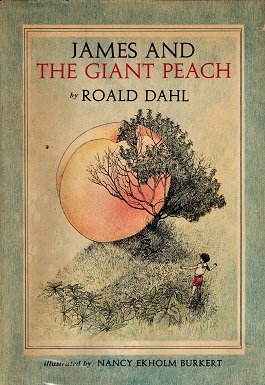Albert Camus
Explore the life and achievements of Albert Camus, the renowned French-Algerian philosopher, author, and journalist. This timeline outlines key events and milestones, from his birth in 1913 to his untimely death in 1960, highlighting his influential works such as 'The Stranger' and 'The Plague', as well as his contributions to existential and absurdist philosophy.
Birth of Albert Camus
Albert Camus was born on November 7, 1913, in Dréan, Algeria, then a part of France. Camus was born into a Pied-Noir family and spent his early years under material hardship due to the death of his father during World War I. Despite these challenges, he excelled in school and eventually moved to Alger to pursue higher education. This formative period shaped his perspectives on life, death, and morality, which would become central themes in his later works.
Graduation from University of Algiers
In 1936, Albert Camus graduated from the University of Algiers with a degree in philosophy. His education at the university played a crucial role in shaping his ideas and introduced him to key philosophical concepts. He became involved in theater and journalism, which further developed his voice as a writer and thinker. Camus's time at the university laid the foundation for his exploration of existentialism and absurdism in his later works through a formal academic lens.
Publication of Betwixt and Between
Albert Camus published his first book, a collection of essays titled "L'Envers et l'Endroit" (Betwixt and Between), in 1937. This early work consisted of five essays that reflect on his youthful observations about life, death, and the human condition. The essays were written with youthful exuberance and passion, laying the groundwork for the themes that would dominate his later writings. "Betwixt and Between" is often seen as an essential prelude to his mature philosophical and literary themes.
Publication of The Stranger
Albert Camus published his first novel, "L'Étranger" (The Stranger), in 1942. This novel is a prime example of Camus's philosophy of the absurd, exploring themes of existentialism and the meaning of life through the protagonist, Meursault, who is an emotionally detached, observational figure. The novel is considered a classic of 20th-century literature and helped establish Camus's reputation as a key figure in existential thought.
Joins French Resistance and edits Combat
In 1943, during World War II, Albert Camus joined the French Resistance against the Nazi occupation of France. He became the editor-in-chief of "Combat," an underground newspaper that was a voice for the Resistance. Through this role, Camus advocated for justice, freedom, and equality, using his philosophical ideals to inspire and mobilize others. His involvement with "Combat" reflected his commitment to the principles of liberty and existential authenticity in the face of immense adversity.
Publication of The Plague
In 1947, Albert Camus published the novel "La Peste" (The Plague), which is set in the Algerian city of Oran. The novel tells the story of a plague sweeping through the city and serves as an allegory for the human condition and the experience of war. "The Plague" became one of Camus's most famous works, commenting on the absurdity of human suffering and the resilience of the human spirit in the face of insurmountable odds.
Publication of The Rebel
Albert Camus published "L'Homme révolté" (The Rebel) in 1951, a philosophical essay in which he examines the historical development of rebellion and revolution in Western thought. Camus distinguishes between just and unjust rebellions, analyzing figures such as Sade and Russian nihilists. The work explores the consequences of modernity's rejection of traditional values, and critiques the totalitarian regimes of the 20th century, highlighting the importance of moderation and humanism.
Publication of The Fall
Albert Camus published "La Chute" (The Fall) in 1956, a philosophical novel structured as a dramatic monologue. The novel tells the story of Jean-Baptiste Clamence, a Parisian expatriate in Amsterdam, who analyses his own life and confesses to his flaws and failures. Through Clamence's introspection, Camus explores themes of judgment, guilt, and existential angst. "The Fall" exemplifies Camus's artistic engagement with the philosophical notion of the absurd.
Awarded Nobel Prize in Literature
Albert Camus was awarded the Nobel Prize in Literature in 1957 at the age of 44, becoming the second-youngest recipient at the time. The award recognized his significant literary production, which sheds new light on the problems of the human conscience in the 20th century. The Nobel Committee admired his mastery of art and literary work expressing the excruciating human dilemmas posed by life in a rapidly changing world.
Death of Albert Camus
Albert Camus died in a car accident on January 4, 1960, near Villeblevin, France. At the time of his death, Camus was a prominent literary and philosophical figure, admired for his novels, essays, and contributions to the philosophy of the absurd. He died unexpectedly at the age of 46, leaving behind an influential body of work that continues to be studied and celebrated for its profound insights into human nature and society.
Frequently asked questions about Albert Camus
Discover commonly asked questions regarding Albert Camus. If there are any questions we may have overlooked, please let us know.
When was Albert Camus born?
What major award did Albert Camus receive?
What are some significant works by Albert Camus?
When did Albert Camus die?
Related timelines
More timelines connected to Albert Camus







